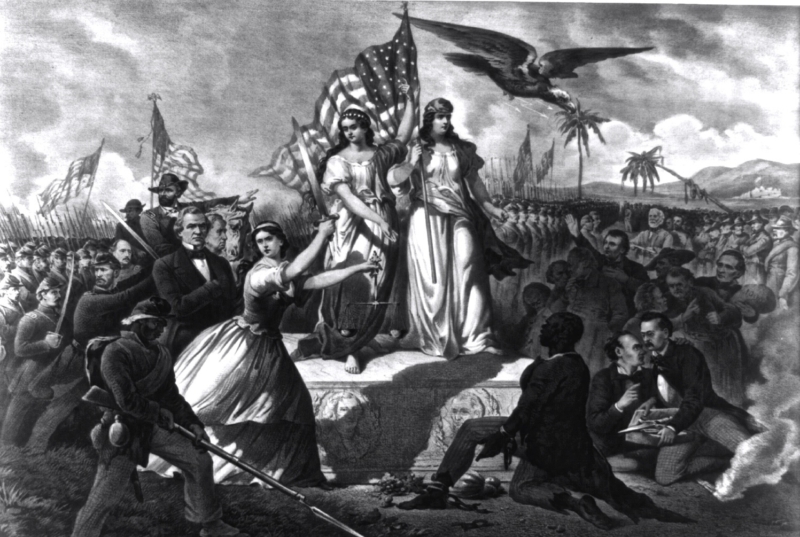Hi, Julie,
Thank you for writing your essay, “March, interrupted: When plans go South” (Writers Resist, February 2, 2017 issue). Thank you for raising your pen in service of the movement and for speaking from a place of awareness and resistance. Thank you for lifting up hope in the face of all the fear and anxiety in which we have been mired. We need more people like you—people who, as you put it, are inexperienced in civic activism, but are moving their voices (whether figuratively or literally) from the page to the street.
As a Southerner and an activist, a person both of great privilege and lack thereof, I would like to offer something for your consideration: The South is not a place which exists in opposition to the resistance. The South is the home of the resistance.
The narrative about the South that exists outside of the South (and, as we internalize it all too often, inside the South as well) is that we are ignorant and, in our ignorance, we are conservative. We are viewed as a people detached from the rest of the country; unmoored from the progressive agenda to which the North is both paladin and avenging angel; our church is our chain; our poverty, the cell to which our ignorance (sadly but justifiably) confines us.
The truth is that we are not so much a people detached as a people divided. The South is the seat of power in the United States. The 13 states of the Old Confederacy house 178 of the 270 electoral votes required to win the presidency, 152 of the 435 members of the House of Representatives, and 26 of the 100 U.S. senators. Almost 38 percent of the U.S. population lives in the South. Our politicians are no strangers to these numbers. The South is also home to half the nation’s Black population, a third of its (known) LGBTQ population, and the highest poverty rates in the United States. And yet, consistently, the South as a political entity behaves in ways that are counter to the interests of Black, LGBTQ and poor people.
There’s an old saying, “As the South goes, so goes the nation.” If this is true (and it is), it becomes suddenly very important to our leaders (almost all of whom are not Black, LGBTQ or poor) to win the South. That is, it becomes important to out leaders to win over a people whose interests are not their interests, whose needs run counter to their own needs. To do this, they taught the South to vote against itself.
Let me say again: We are not a people detached; we are a people divided. They split us up and pitted us against each other. Literacy laws, the “one drop” rule, Jim Crow, voter suppression, gerrymandering, anti-LGBTQ laws, the Southern Strategy, North Carolina’s Amendment 1, and, most recently, HB-2 all serve an important function. Our leaders taught poor whites that black and brown people are a threat to white jobs, white security, white wealth. This is not true. They taught straight people that LGBTQ people are a disease and a menace to their children. This is not true. They taught Christian people that people of other faiths are predators, criminals and terrorists. This is not true. With coded language and the strategic application of resources, they taught us to hate and fear each other. We looked at each other sidelong. We voted against one another in hopes of protecting ourselves from monsters (that did not exist), and, in voting against each other, we voted against ourselves. They stole our power out from under us and so won the governmental seats they desired.
We are not ignorant; we are a closely-guarded federal resource. We are not powerless; we are enchained. So when you write of speaking out, do not write of speaking out even in southwest Georgia—write of speaking out especially in southwest Georgia. Look on your Fox News-watching relatives with compassion; they’re under the same spell as all the rest of us. Don’t hold yourself too far removed from those who are less knowledgeable than you or from those who are less sensitive or less aware. We’ve all been listening to the same propaganda, all drinking from the same poisoned well. What we need now is not to shun those who have swallowed more poison than us, but to extend to them our empathy and compassion. The work to be done now is the work of healing and bridge making. It is the hardest work of all, but it must be done if we are going to win back the power that has been stolen from us, whose origin is in our hearts and our hands and our throats.
I’m glad you’ve come here—we need people like you. Welcome to the South. Welcome home.
K Walton is a writer and activist in Asheville, North Carolina, where she lives in the sticks with her partner and their cat.
Image credit: U.S. Library of Congress, “The End of the United States Rebellion 1865.”


[…] March, redoubled: When plans go South, by me. […]
Hi, Julie here. Thank you for your response. You make a great point of how the resistance is especially important in the South. Being from there, I know it is so much more complex of a place than many people perceive it to be. But even knowing that, I find it jarring sometimes when I visit and come face-to-face with views that are so much different than mine. But you are right that it’s important to empathize and not needlessly create more division. I’m happy to join you and all the other activists down there doing the hard work of bridge making.